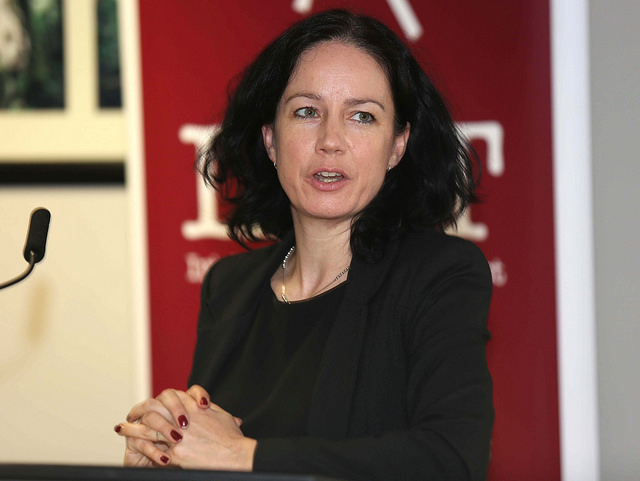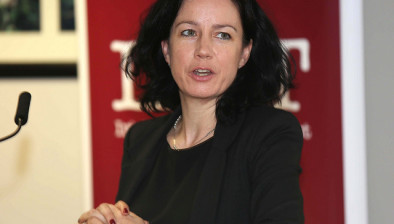Family support services in prisons would ‘improve outcomes’ for children with jailed parents

New family support services should be established in prisons and communities to improve outcomes for children with a parent in prison, researchers have said.
A new report commissioned by the Dublin-based Childhood Development Initiative (CDI) sets out how prisoners’ children are at a much greater risk of experiencing negative educational, behavioural and emotional outcomes, as well as greater risk of future incarceration.
The maintenance and development of positive links with children and family during imprisonment reduces these risks, as well as reducing the risk of re-offending on the part of the prisoners.
The report suggests how a family focus is needed at the point of imprisonment, during the sentence and also on release. Information and supports are required in prisons and in the community and the report makes 40 recommendations about these.
Commenting on the report, CDI CEO Marian Quinn said: “Services should support families at any point during the period of imprisonment, especially leading up to release and for a time after release.
“They need to work with prisoners, partners and children in prison and the community and also encourage them to engage with Tusla and other services.”
The Prisoners Returning Home: Prisoners and Family Reintegration report was written by Dr Kieran O’Dwyer, Sharron Kelliher and James Bowes.
Dr O’Dwyer said the review found some positive aspects of the current system and services, but also identified widespread system shortcomings and service gaps, not least a lack of information about families on the part of State agencies.
“It became clear that the basis for successful reintegration should start as soon as imprisonment begins,” Mr O’Dwyer said.
“Prisoners and their partners identified family-related needs at three stages of the imprisonment experience: around committal, during imprisonment and around release. The main need around committal was in relation to providing information to families at this time of great upset.
“Needs during imprisonment included enhanced family contact, family involvement in sentence planning, services to address offending behaviour and family supports in the community. Needs around release included family involvement in planning and support around reintegration.
“We are recommending that the Irish Prison Service (IPS) see prisoners in the context of their families and develops offender management policy accordingly. Family support and parental learning should be key interventions.”

Fíona Ni Chinnéide
Fíona Ni Chinnéide, executive director of the Irish Penal Reform Trust (IPRT), welcomed the research and said it provided very useful recommendations on steps that could be taken to support better outcomes for children whose parents are in prison.
Ms Ni Chinnéide said: “Supporting people in prison to maintain and improve their relationships with their families will benefit everyone. Children can be forgotten about in terms of how parental imprisonment affects them, and we have to do more for them while their parent is in prison and also after release.
“We know from evidence that strengthening family relationships will also reduce re-offending. Investing in and developing greater family support systems through the prison system, and in the community, will ultimately be of great benefit to all of society.”
The research builds on a pilot programme which CDI developed in partnership with the Katherine Howard Foundation and the Irish Prison Service (IPS) called the Family Links Programme.
The programme aimed at maintaining imprisoned fathers’ relationships with their partners and their children and was found to affect a significantly positive outcome.








